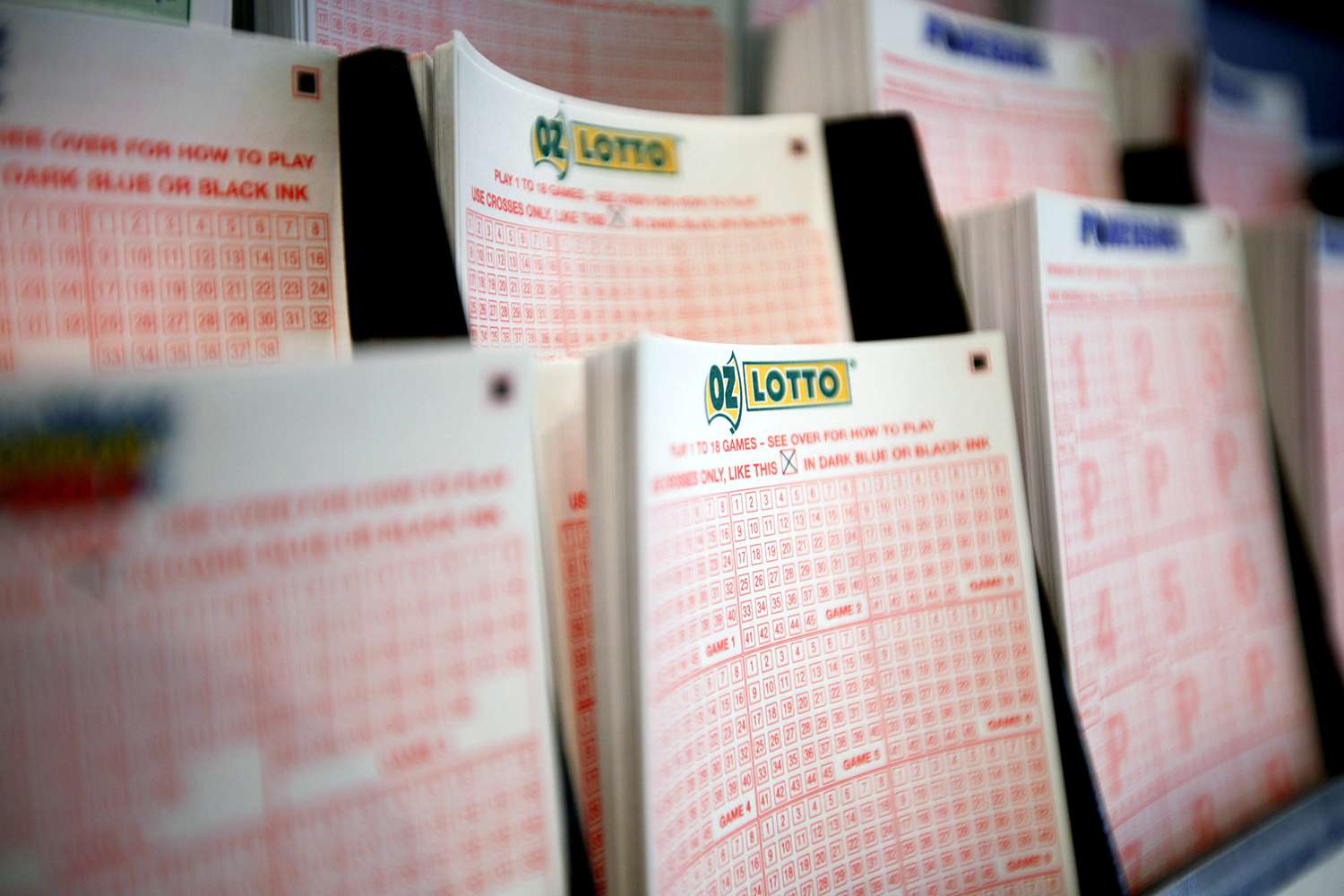The allure of winning big with a small investment has made lotteries a popular form of entertainment across the globe. People from all walks of life are drawn to the excitement and anticipation of potentially life-changing prizes. In this beginner's guide, we will delve into the business model and principles that underpin the lottery industry. By understanding how lotteries operate, you can make informed decisions and enjoy the experience responsibly.
I. The Business Model of Lotteries
 A lottery (or lotto) is a form of gambling that involves the drawing of numbers at random.[/caption]
A lottery (or lotto) is a form of gambling that involves the drawing of numbers at random.[/caption]
A. Ticket Sales: The Revenue Engine
Lotteries generate their revenue primarily through ticket sales. To strike a balance between affordability for players and profitability for the lottery operator, ticket prices are carefully determined. Lotteries employ effective pricing strategies that entice a large number of participants while ensuring a steady stream of income. Marketing and distribution channels play a crucial role in driving ticket sales. Lotteries invest in various advertising campaigns, partnerships with retailers, and online platforms to reach a broad audience. By increasing the visibility and accessibility of lottery tickets, more people are encouraged to participate, ultimately fueling the prize pool.
B. Prize Payouts: Fueling the Dream
A significant portion of the revenue generated from ticket sales is allocated for prize payouts. Lotteries offer diverse prize structures, including fixed amounts, progressive jackpots, and tiered rewards. The percentage of sales allocated to prizes varies among lotteries, but it is typically substantial to entice players and maintain their interest. Maintaining the balance between prizes and revenue is crucial for the sustainability of lotteries. While the allure of big prizes attracts participants, it is essential for lotteries to retain enough revenue to cover operational costs, fund public initiatives, and ensure their long-term viability.
C. Odds and Probability: Calculating Success
Lotteries carefully calculate the odds of winning to optimize their profitability. The calculation of winning odds is based on the concept of probability, which determines the likelihood of winning. By manipulating the odds, lotteries can adjust the expected return for players while ensuring significant revenue generation. The odds of winning a lottery are often long, and the probability of hitting the jackpot is low. This contributes to the profitability of lotteries as more tickets are sold when jackpots reach exceptionally large amounts, resulting in increased revenue.
II. Principles of Lotteries
 Lotteries promote safe and responsible gameplay.[/caption]
Lotteries promote safe and responsible gameplay.[/caption]
A. Regulation and Oversight: Ensuring Fairness
Government entities play a vital role in regulating lotteries to ensure fairness, and transparency, and prevent fraudulent activities. Regulations govern various aspects, including ticket sales, prize payouts, and operational procedures. By enforcing regulations, government oversight helps build trust in the lottery industry, assuring players that the games are conducted with integrity. Additionally, lottos often allocate a portion of their revenue to public initiatives. Funding education, healthcare, infrastructure, and other social programs benefit society as a whole. By contributing to these initiatives, lotteries aim to make a positive impact on the communities they serve.
B. Responsible Gaming: Playing It Safe
Lottos prioritize responsible gaming practices to promote a safe and enjoyable experience for players. Age restrictions are strictly enforced to ensure that only adults participate. Lotteries also implement self-exclusion programs, allowing individuals to voluntarily restrict their access to lottery games if they feel the need to do so. Furthermore, lotteries provide resources and support for problem gambling. Collaborating with organizations that offer helplines, counseling services, and educational materials, lotteries raise awareness about the potential risks associated with excessive gambling. By actively promoting responsible play, lotteries aim to mitigate any negative consequences that may arise.
C. Unclaimed Prizes: The Unexpected Revenue Boost
Unclaimed prizes are an intriguing aspect of the lottery industry. When winners fail to claim their prizes within a specific time frame, the unclaimed funds revert to the lottery. These unclaimed prizes contribute to the revenue of the lottery, allowing them to continue operating and offering future games.
III. Impact and Controversies
A. Social and Economic Impact: Funding Public Initiatives
Gambling has a significant impact on society, both economically and socially. The revenue generated from lotteries often supports various public initiatives, such as education, infrastructure development, and healthcare. By funding these programs, lotteries play a vital role in improving communities and providing resources that benefit the public. Furthermore, lotteries have been instrumental in generating funds for charitable causes. Many lotteries have partnerships with charitable organizations, and a portion of the proceeds from ticket sales is dedicated to these causes. This has enabled lotteries to support a wide range of charitable endeavors, such as disaster relief, medical research, and cultural preservation.
B. Criticisms and Concerns: Debating the Downsides
Despite their positive impact, lotteries have faced criticisms and concerns. Some argue that lotteries are a form of regressive taxation, disproportionately affecting low-income individuals. Critics also raise concerns about the potential exploitation of vulnerable populations who may be more susceptible to gambling-related issues. In response to these criticisms, proponents of lotteries highlight their role as a voluntary form of entertainment. They argue that lotteries provide opportunities for individuals from all socio-economic backgrounds to dream of a better future. Additionally, ongoing discussions within the lottery industry aim to address concerns and explore potential reforms to mitigate any negative consequences associated with excessive gambling. Find more: The Importance Of Understanding Trading Terminology In Crypto Trading
Understanding Lotteries: An Informed Approach to Entertainment
Lotteries have become a global phenomenon, offering the prospect of life-changing prizes with a small investment. By comprehending the business model and principles that underpin lotteries, readers can make informed decisions and enjoy the experience responsibly. While lotteries provide entertainment and hope, it is essential to approach them responsibly and within one's means. Remember, the joy of participating in lotteries lies in the excitement of the game and the dreams they inspire.